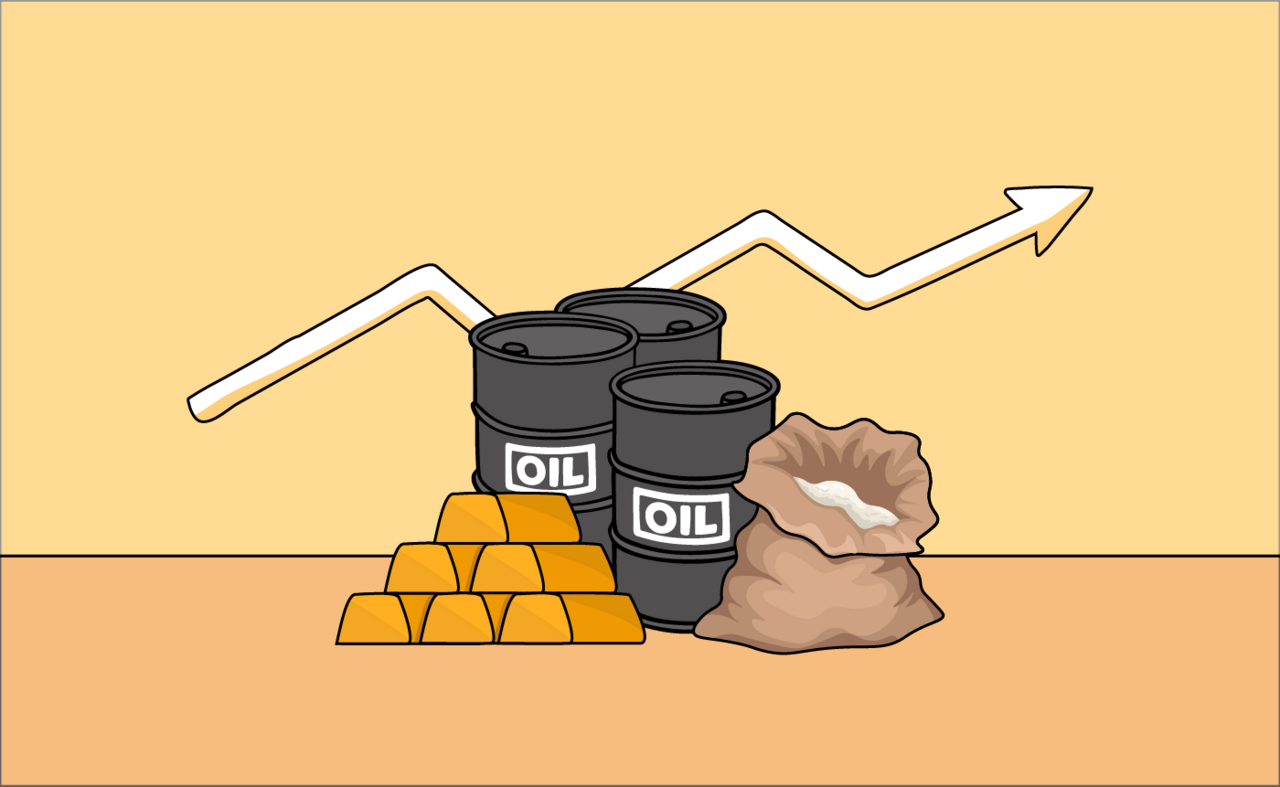Investing in commodities can be a rewarding yet complex endeavor. From agricultural products and energy sources to precious metals, commodities offer a diverse range of investment opportunities. In this comprehensive guide, we’ll delve into the intricacies of investing in commodities, exploring different types, popular brokers, and the pros and cons associated with this unique asset class.
Understanding Commodities:
Commodities are physical goods that are interchangeable with other goods of the same type. They can be broadly categorized into two main groups:
- Hard Commodities:
- Include natural resources like gold, silver, oil, and agricultural products.
- Physical substances that are mined or extracted from the earth.
- Soft Commodities:
- Encompass agricultural products like wheat, corn, coffee, and livestock.
- Derived from natural growth processes.
Types of Commodities:
| Category | Examples |
|---|---|
| Precious Metals | Gold, Silver, Platinum |
| Energy | Crude Oil, Natural Gas |
| Agriculture | Wheat, Corn, Soybeans |
| Livestock | Cattle, Hogs |
| Industrial Metals | Copper, Aluminum |
Each type of commodity has its own unique market dynamics, influenced by factors such as global supply and demand, geopolitical events, and weather conditions.
How to Invest in Commodities:
Investors have several avenues to participate in the commodities market, each with its own set of advantages and considerations.
- Futures Contracts:
- Investors can trade futures contracts, which are agreements to buy or sell a specific quantity of a commodity at a predetermined price on a future date.
- Provides an opportunity for price speculation and hedging against price fluctuations.
- Requires a good understanding of the futures market and the ability to manage potential risks.
- Exchange-Traded Funds (ETFs):
- ETFs offer a convenient way to invest in a basket of commodities without directly owning the physical assets.
- Provides diversification across multiple commodities within a single investment.
- Offers liquidity as ETF shares can be bought and sold on the stock exchange.
- Commodity Stocks:
- Investing in stocks of companies involved in the production, exploration, or distribution of commodities.
- Provides exposure to the commodities market while also benefiting from potential company growth.
- Subject to stock market fluctuations and company-specific risks.
- Commodity Mutual Funds:
- Mutual funds focused on commodities provide diversification across various commodities and commodity-related assets.
- Managed by professional fund managers who make investment decisions on behalf of investors.
- Fees and expenses associated with mutual funds should be considered.
- Direct Ownership:
- Physically owning commodities by purchasing and storing them.
- Common for precious metals like gold and silver.
- Requires secure storage and insurance, incurring additional costs.
Comparing Popular Brokers for Commodities Investment:
When considering where to invest in commodities, the choice of a broker plays a crucial role. Here’s a comparison of three popular brokers, each offering a different approach to commodities trading:
| Broker | Features | Pros | Cons |
|---|---|---|---|
| Interactive Brokers |
|
|
|
| TD Ameritrade |
|
|
|
| E*TRADE |
|
|
|
Pros and Cons of Investing in Commodities:
Pros:
- Diversification:
- Commodities offer a unique diversification opportunity, as their performance may not always align with traditional asset classes like stocks and bonds.
- Inflation Hedge:
- Some commodities, particularly precious metals like gold, are often considered hedges against inflation, preserving wealth in times of economic uncertainty.
- Global Demand:
- The demand for commodities is driven by global economic activities, providing investors with exposure to international markets.
- Portfolio Protection:
- Commodities can act as a hedge during periods of economic downturns, providing protection against declining stock and bond markets.
Cons:
- Volatility:
- Commodities markets can be highly volatile, with prices susceptible to rapid and unpredictable fluctuations.
- Storage Costs:
- Direct ownership of physical commodities may incur storage costs, especially for precious metals like gold and silver.
- Geopolitical Risks:
- Political events and geopolitical tensions can significantly impact commodity prices, introducing an additional layer of risk.
- Market Complexity:
- Futures trading and commodities markets, in general, can be complex, requiring a good understanding of market dynamics and risk management strategies.



